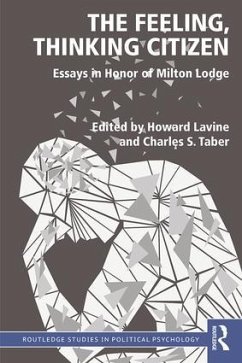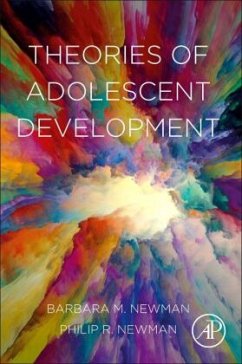
The Tribal Mind and the Psychology of Collectivism
Versandkostenfrei!
Versandfertig in 6-10 Tagen
49,99 €
inkl. MwSt.
Weitere Ausgaben:

PAYBACK Punkte
25 °P sammeln!
Tribalism is a key evolutionary feature of humans, and the recent growth in tribal polarisation presents a serious challenge to our highly individualistic civilisation. This fascinating book examines the psychological origins and consequences of tribalism both in our private and in our public lives.The chapters explore how social, evolutionary, biological, and cognitive factors shape our tribal habits, featuring contributions from eminent international researchers. The chapters review the nature and origins of tribalism, the psychological mechanisms promoting tribalism, how tribal narratives c...
Tribalism is a key evolutionary feature of humans, and the recent growth in tribal polarisation presents a serious challenge to our highly individualistic civilisation. This fascinating book examines the psychological origins and consequences of tribalism both in our private and in our public lives.
The chapters explore how social, evolutionary, biological, and cognitive factors shape our tribal habits, featuring contributions from eminent international researchers. The chapters review the nature and origins of tribalism, the psychological mechanisms promoting tribalism, how tribal narratives can distort rationality and perceptions of reality, and the role of tribalism in politics and public affairs. The contributions investigate how insecurity, the search for meaning and attachment, victimhood, grievance, and cognitive shortcomings can facilitate tribal bonding and how such groups once formed can foster conflict, hatred, and irrational behaviours. The book suggests that the survival of our extremely successful civilisation based on the enlightenment values of liberty and individualism may well depend on our ability to understand and manage the human evolutionary propensity for tribalism.
The book will be of great interest to students and researchers in psychology, sociology, and other disciplines of behavioural and social sciences, as well as all readers who seek to understand one of the most intriguing issues that shape human social life.
The chapters explore how social, evolutionary, biological, and cognitive factors shape our tribal habits, featuring contributions from eminent international researchers. The chapters review the nature and origins of tribalism, the psychological mechanisms promoting tribalism, how tribal narratives can distort rationality and perceptions of reality, and the role of tribalism in politics and public affairs. The contributions investigate how insecurity, the search for meaning and attachment, victimhood, grievance, and cognitive shortcomings can facilitate tribal bonding and how such groups once formed can foster conflict, hatred, and irrational behaviours. The book suggests that the survival of our extremely successful civilisation based on the enlightenment values of liberty and individualism may well depend on our ability to understand and manage the human evolutionary propensity for tribalism.
The book will be of great interest to students and researchers in psychology, sociology, and other disciplines of behavioural and social sciences, as well as all readers who seek to understand one of the most intriguing issues that shape human social life.














